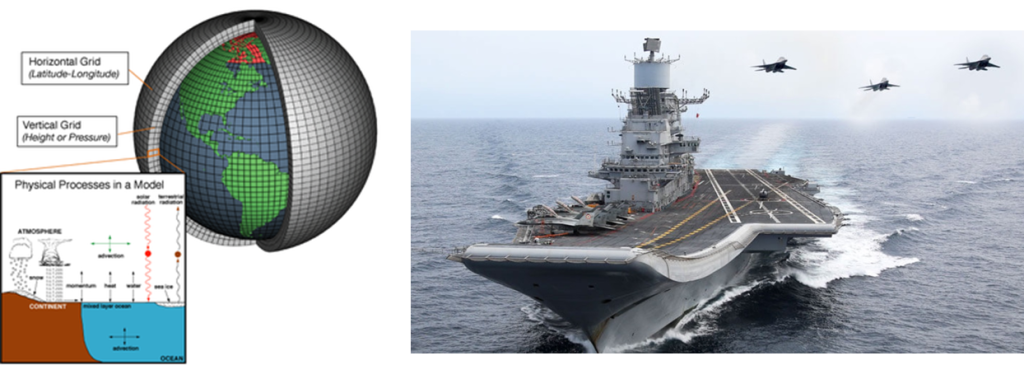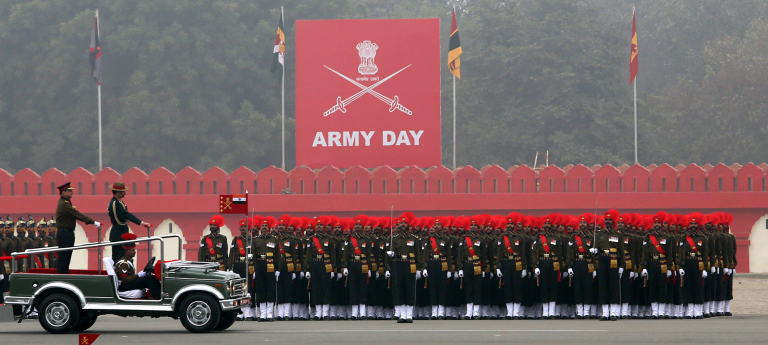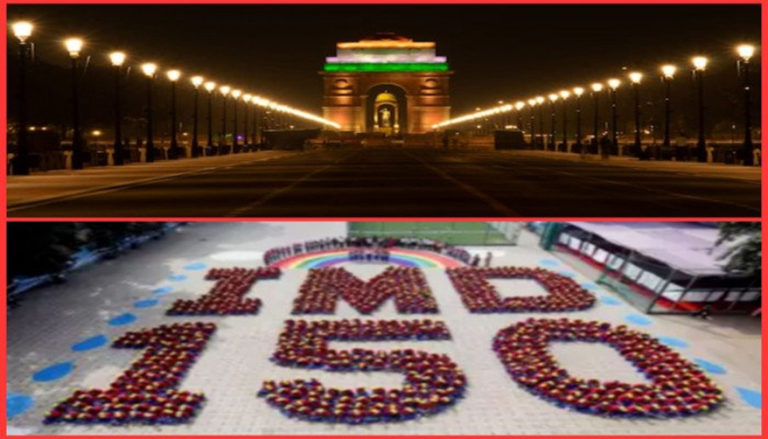The World Meteorological Day is commemorated every year on 23rd March. It marks the origin of World Meteorological Organization (WMO) on 23 Mar 1950 and signifies the invaluable contribution and essential role of the meteorologists in this field.
METOC Seminar ‘Meghayan 2024’
As part of the World Meteorological Day celebrations, a METOC (Meteorological and Oceanographic) seminar _’Meghayan-24’_ was conducted by School of Naval Oceanology & Meteorology (SNOM) and Indian Naval Meteorological Analysis Centre (INMAC) at Southern Naval Command on 28 Mar 24. The seminar was based on the theme _*’At the Frontline of Climate Action’*_ as promulgated by WMO for the year 2024.
The inaugural address was delivered by Admiral R Hari Kumar, Chief of the Naval Staff through virtual mode. He highlighted the need for accurate and immediate focus on the pressing challenge of climate change and to work together in the collective pursuit of common goal of ‘Achieving a Climate Smart Society’ under the global framework for climate services of WMO.
He reiterated Indian Navy’s commitment to adopting long term sustainable policies to address the environmental concerns and integrating climate change considerations in the security strategy. While laying importance on reliable METOC support for safe & optimal Naval operations, he complimented the dedicated efforts and contributions of the Naval met specialists in this field providing crucial support across all domains.
On this occasion an indigenous mobile application INDRA (Indian Naval Dynamic Resource for Weather Analysis) to disseminate weather related information and forecasts empowering optimal & quick decision making was also launched. The application has been developed by BISAG (Bhaskaracharya National Institute for Space Applications and Geo-informatics) in coordination with Directorate of Naval Oceanology and Meteorology, Indian Navy.
Climate Change: A Roadblock to Economic Growth
There is a mounting global consensus that climate change is putting a stress on the growth trajectory of nations worldwide, with evident economic, social and environmental implications.According to the World Economic Forum’s Global Risks Report 2020, the top 5 risks over the coming decade, in terms of likelihood, are all Climate-related including human-made environmental disasters, climate action failure, natural disasters, biodiversity loss and extreme weather.
What is Climate Change
Climate change refers to long-term shifts in temperatures and weather patterns. These shifts may be natural, such as through variations in the solar cycle. But since the 1800s, human activities have been the main driver of climate change, primarily due to burning fossil fuels like coal, oil and gas.
How Climate Change is Relevant for Indian Economy
The climate of India is quite diversified in nature, from the Himalayan crown to the flat beaches, a significant transition in climate is visible.
The climate varies from the freezing temperatures of the Himalayan Mountains to the tropical climatic conditions of Southern India.










